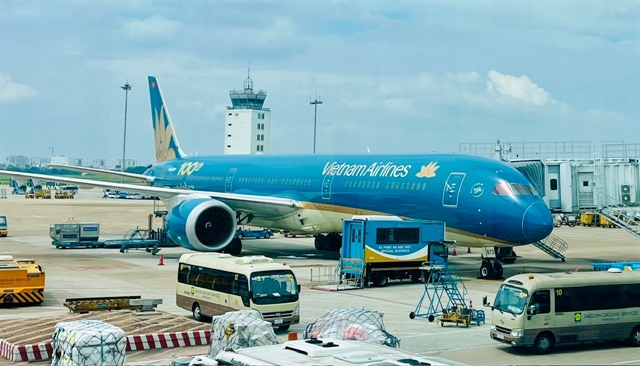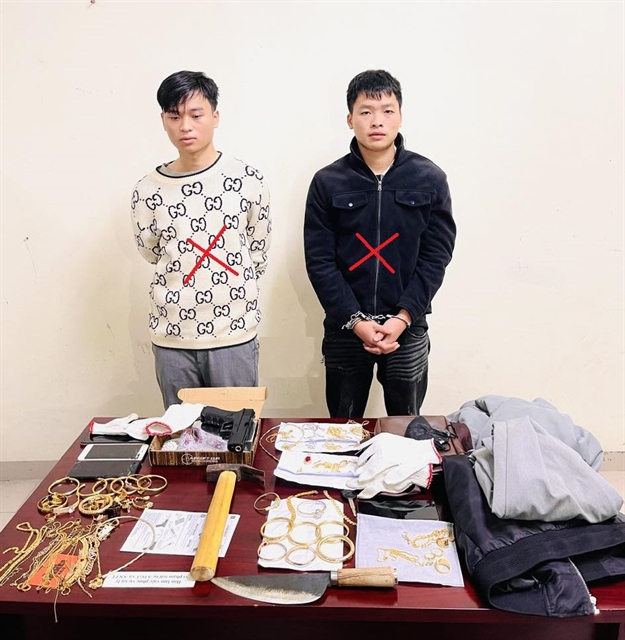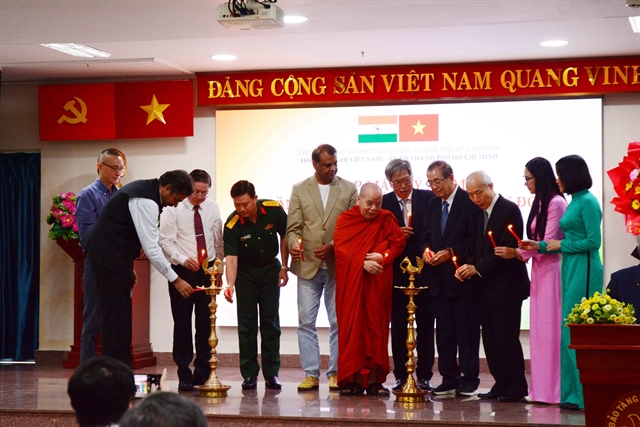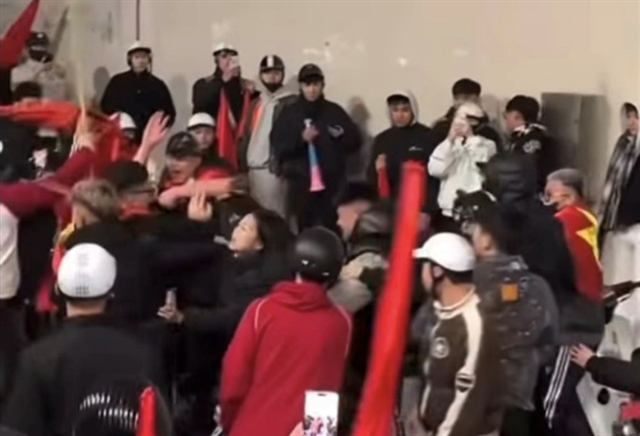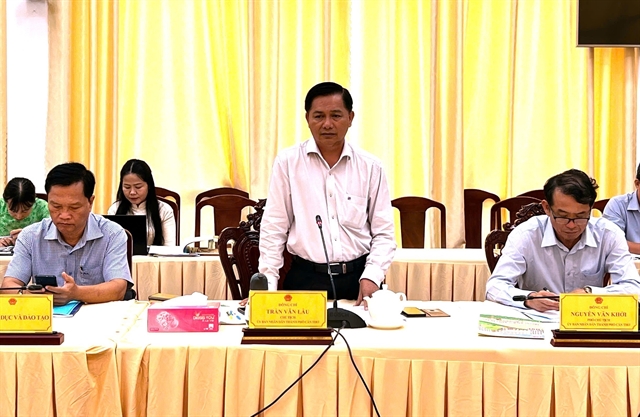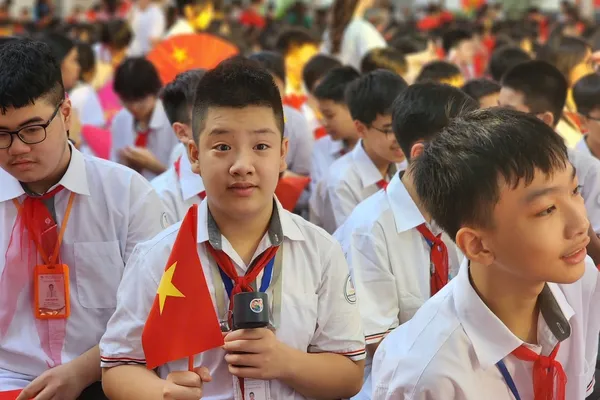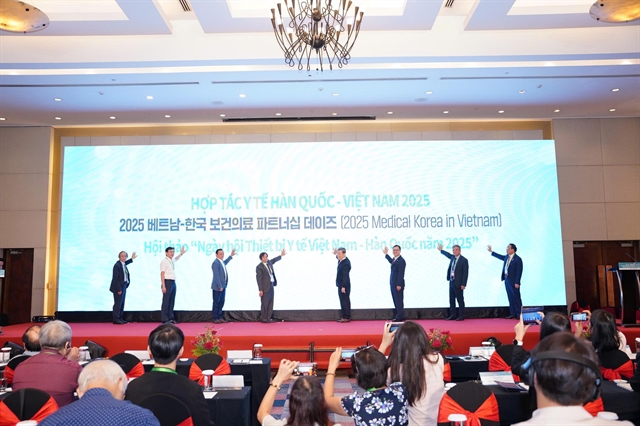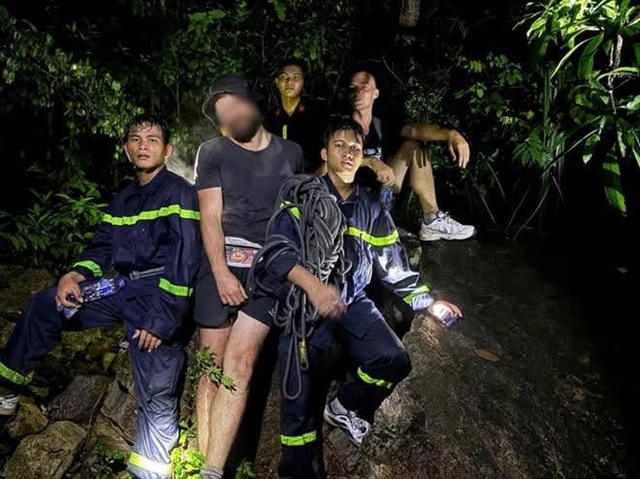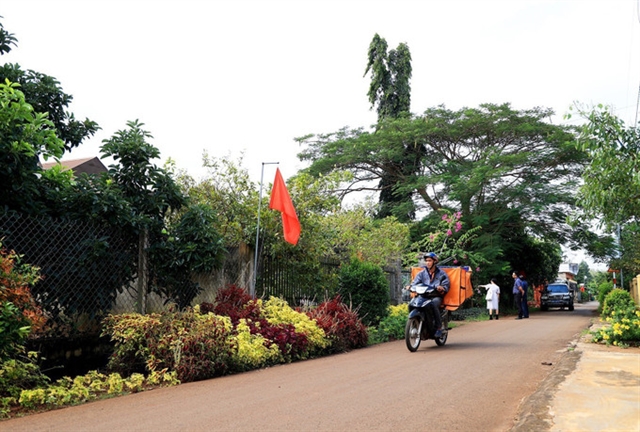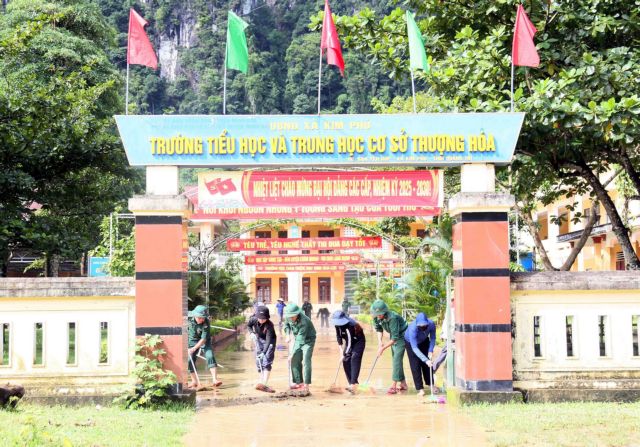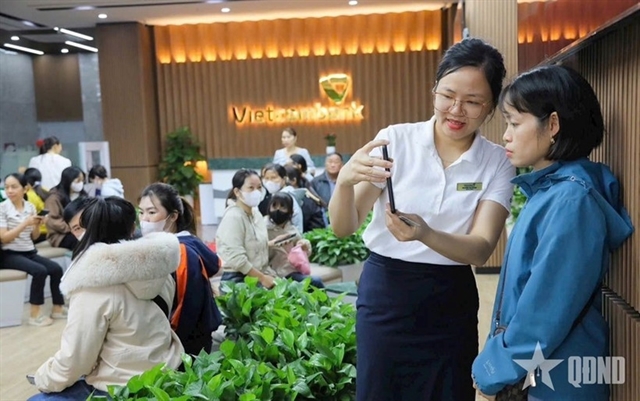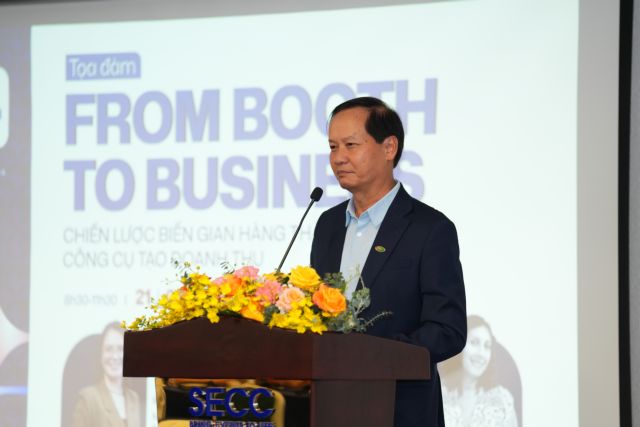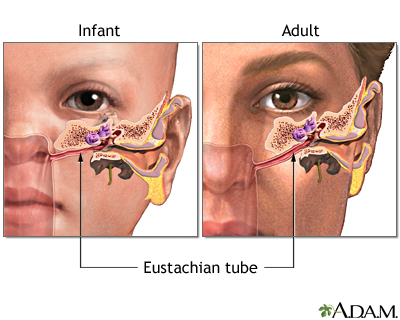
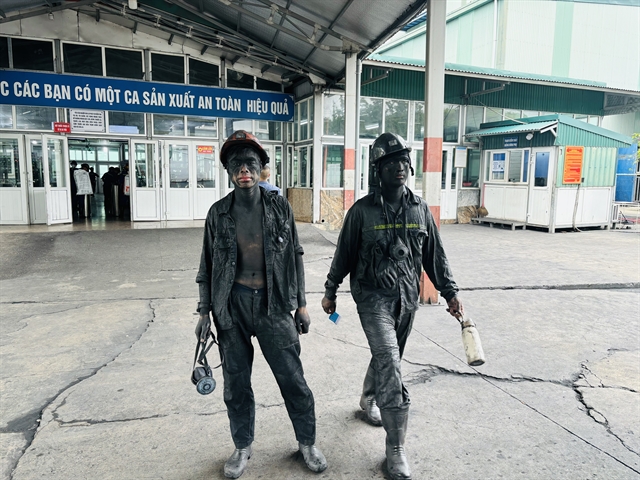
|
| Coal miner of Núi Béo Coal Company finish their eight-hour shift with full of dust surrounding their bodies. VNS Photo Khánh Dương |
Khánh Dương
At 3.30pm, coal miner Phùng Náo Lụng, 28, emerges from an eight-hour shift, his body coated in black dust after another day underground in northern Quảng Ninh Province.
Three years ago, he left his hometown in Lai Châu Province, following his brother’s footsteps into the mines of Núi Béo Coal Company.
Newcomers like Lụng can earn about VNĐ20 million (US$770) a month for working as deep as 350 metres below ground, six days a week. By Vietnamese standards, it is a solid wage. Yet the work is punishing.
“I have to live far from home. Last year, I brought my wife here to look for work, but she couldn’t find a job. So she is still back home,” he said.
When asked if he intends to remain in mining, Lụng was candid.
“Probably I will work here for several years. After saving about VNĐ400–500 million, I will quit and return to my hometown to start something else,” he told Việt Nam News.
Like him, many miners in Quảng Ninh are lured by the pay but put off by the hardships. Experienced workers can earn VNĐ25–30 million monthly, but the hours, the distance from home and the risks mean few see it as a lifelong path.
According to Núi Béo Coal Company, more than 90 per cent of its 2,000-plus miners come from northern mountainous provinces, with fewer than one in ten locals taking on the work.
“Many of them work for four to five years and then quit. Every year, the company needs to recruit about 400–500 miners to meet production demand. Our workforce is also diverse, representing 20 ethnic groups,” said deputy director Phạm Bá Tước.
Deputy director of Hòn Gai Coal Company Nguyễn Ngọc Thoản noted that as Quảng Ninh transitions from a 'brown' to a 'green' economy, many workers had shifted to tourism and service jobs.
“As the country develops and industrial zones expand, labour shortages are a reality, especially in the coal sector where the work is physically demanding and the workforce is predominantly male,” he said.
"Others have taken their savings into real estate or other commercial work," Thoản added.
Improving working and living conditions
To retain staff, coal companies under the state-owned Vietnam National Coal and Mineral Industries Holding Corporation (Vinacomin) are investing in technology and worker welfare.
Doãn Đức Hạnh, deputy manager of excavation site No. 2 at Núi Béo Coal Company with 25 years of experience, said safety was closely monitored.
“Greater automation helps ease heavy manual work. Workers no longer have to carry loads themselves. Technology applied underground also reduces the risks of occupational accidents,” he said.
Núi Béo also covers vocational training costs and provides meal allowances for interns. When open-pit mines were closed in late 2021, all staff were transferred to new roles to avoid redundancies. Female workers were not sent underground but supported into lighter positions such as operating equipment or handling protective clothing.
Hòn Gai Coal Company has gone further by building a five-storey dormitory for around 800 single workers, complete with sports facilities to promote relaxation and community.
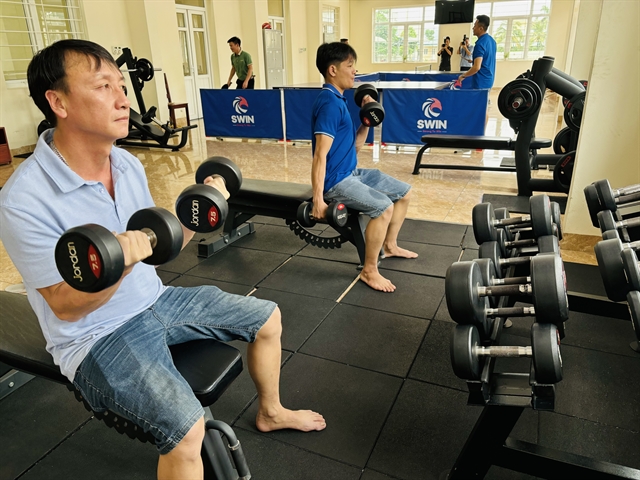
|
| Coal miners work out at a gym facility at Hòn Gai Coal Company's dormitory. VNS Photo Khánh Dương |
Chairman of the company’s trade union Vũ Đại Chung said: “We have five or six so-called ‘happy rooms’ where workers’ families can stay free of charge, with meals included, for up to five days when they visit.”
The company also operates another facility that accommodates 19 families of coal miners.
“We consider every worker our own relative. We retain workers by preferential mechanisms, wage bonuses and housing,” he added.
Next year, the company plans to build another dormitory with 40 single rooms, each measuring 20–25sq.m.
“Once housing demand for single workers is met, we hope to expand further to accommodate more families,” Chung said.
The company’s leaders understand the wishes of workers from ethnic groups to reunite with their families during traditional festivals.
“So we create conditions for them to take days off on those occasions,” Deputy director Toản said.
Vinacomin is also collaborating with textile firms in Quảng Ninh to create job opportunities for miners’ wives.
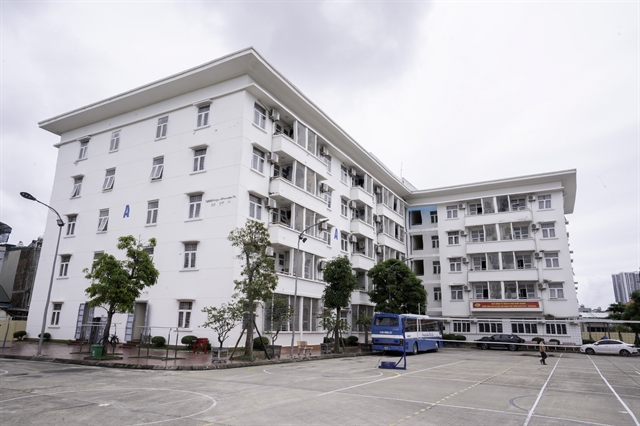
|
| A five-storey dormitory for coal mining workers of Hòn Gai Coal Company, Photo courtesy of GIZ |
Giàng A Xang, a 38-year-old miner from the Mông ethnic group in Lào Cai Province, said the dormitory was equipped with modern amenities such as televisions, refrigerators and washing machines.
Thirty-five-year-old miner Bùi Văn Tuyên added that the miners even had buses that take the workers to and from the mines every day.
“Here we have many workers from different hometowns sharing a room with four people. Each has their own personality, lifestyle and schedule, which sometimes causes annoyance. I hope that next year more single rooms can be built,” Tuyên said. — VNS

